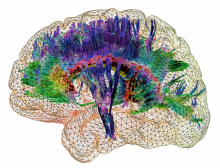By Katherine Gombay, McGill Newsroom

Parents don’t like it when children lie. But what do the kids themselves think about it? New research suggests truth telling isn’t black and white.
As children get older, their moral evaluations of both lies and truths is increasingly influenced by whether they think this behaviour will cause harm to either others or themselves.
KalGene gears up to manufacture and test promising Alzheimer’s treatment with NRC, McGill and CIMTEC
KalGene Pharmaceuticals and the National Research Council of Canada (NRC) are proud to announce the signature of an agreement worth over $1M to develop, scale up, and transfer the technology needed to manufacture a promising novel Alzheimer’s treatment in Canada that the parties have been co- developing since 2015.
The treatment, a biologic molecule made up of a peptide that fights Alzheimer’s and an antibody-based carrier molecule designed to shuttle the peptide into the brain, is a custom- engineered therapeutic developed at NRC.

Traveling and harvesting on the land and sea is of vital importance to Indigenous communities in the Canadian Arctic and subarctic, with links to food security, cultural identity, and wellbeing. A new study by the Climate Change Adaptation Research Group at McGill University however, finds that economic transitions, social shifts, and climate change are dramatically affecting the safety of Inuit during these activities.


The brain’s biological clock stimulates thirst in the hours before sleep, according to a study published in the journal Nature by McGill University researchers.

McGill University launches its Task Force on Indigenous Studies and Indigenous Education, mandated by Provost and Vice Principal Academic, Christopher Manfredi, with a public event to be held on September 22 at the new site of the Hochelaga Rock. The Task Force will propose initiatives aimed at integrating indigenous perspectives into the academic curriculum and research, as well as the retention and recruitment of Indigenous students and faculty members.


You may have noticed that women are more prone to sleep disturbances than men. They are, for instance, up to twice as likely to suffer from insomnia than men. Could there be a link between the body clock that regulates sleep and being a female or a male? Yes, according to an original study conducted by Dr. Diane B. Boivin of McGill University’s Department of Psychiatry and the Douglas Mental Health University Institute.
In the context of the MUHC’s recent announcement regarding Ms. Alfonso’s appointment and the MUHC’s strategic direction, McGill University is very supportive of any proposal that has as its primary goals to improve patient care and strengthen the academic mission in its affiliated health network.

With global temperatures continuing to rise at an alarming rate, predictions for the impact of climate change on plants and wildlife must improve to give scientists a clearer picture of which species are most at risk of extinction.

McGill Newsroom
The evolution and distribution of spiny plants holds clue to spread of African savanna
A receptor for the dopamine neurotransmitter promotes growth and spread of pancreatic cancer -- and schizophrenia drugs, which block the function of this receptor, slowed tumor growth and metastatic spread in mice, according to researchers at McGill University and the German Cancer Research Center.

Much of the influence on climate from air pollution in East Asia is driven by consumption in the developed countries of Western Europe and North America, according to research co-led by McGill University atmospheric scientist Yi Huang.
In a paper published online this week in Nature Geoscience, Huang and colleagues from China, the U.S. and U.K. report that international trade shifts the climate impacts of aerosols -- solid or liquid particles suspended in air -- from net consuming countries to net producing countries.
